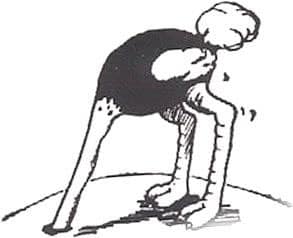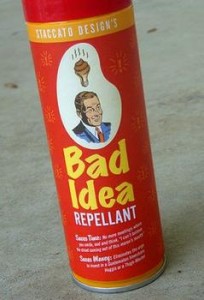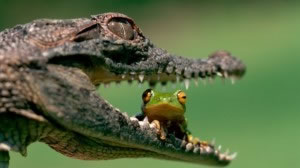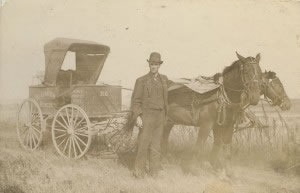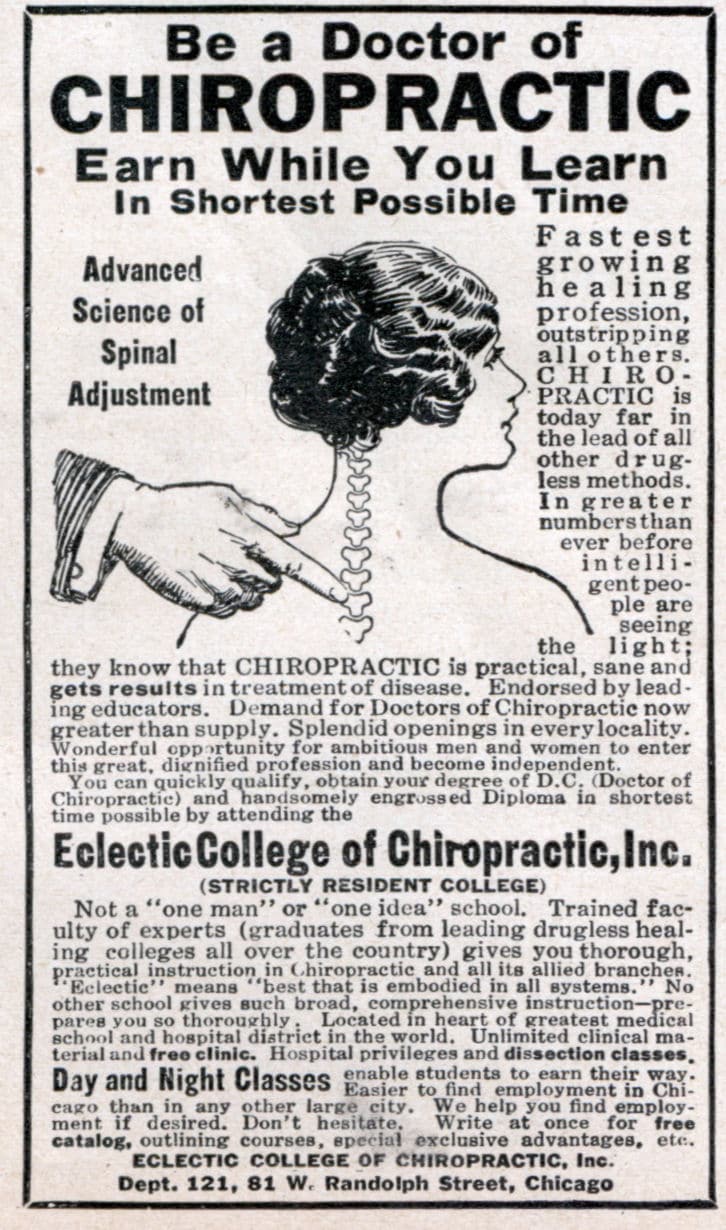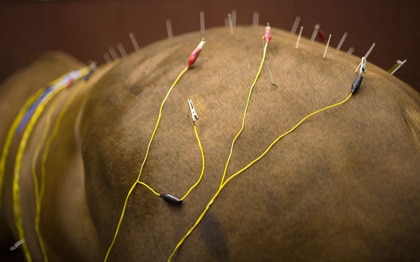Personally, I think that guys like Edward Jenner and Louis Pasteur are historical heroes. Among their other accomplishments, Jenner is given credit for the smallpox vaccine (In fact, in one of the great medical triumphs of all time, smallpox has actually been eliminated from the earth, thanks to vaccination), and Pasteur came up with the first vaccine against rabies (the account of his saving the life of a small boy who had been attacked by a rabid dog is a true medical miracle – CLICK HERE to read about it).
However, for some reason – and in spite of their many, and obvious benefits – some people seem to be bound and determined to blame a whole variety of ills on vaccines. Here’s a partial list: “Arthritis, allergies, skin problems, infertility, autoimmune problems, neurological syndromes.” The folks who don’t like vaccines have even come with a catchy term for this purported problem – “Vaccinnosis.” There are lots of websites that promote this anti-vaccine nonsense, most sponsored by “holistic” practitioners. And it is nonsense. It’s dopey.
You’d think that if I said, “There is not one single shred of evidence that links vaccination to any sort of chronic disease in the horse,” that might be enough. But, of course, the fact that there’s no evidence whatsoever for anything like “vaccinosis” is not enough for some folks. And, in a dopey attempt to counter the lack of evidence, they’ll come up with conspiracy theories and the like (“Sure, Dr. Ramey. You make MONEY from vaccines. You’re just in the pocket of the drug companies. I know where you’re coming from.”)
ASIDE: I wish I made enough money from vaccines and drug companies to be able to be writing this from Tahiti. However, I don’t, and I’m writing this in between loads of laundry. Just thought you’d want to know.
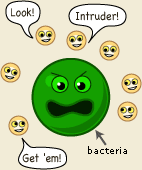 When you give an animal a vaccine (or, for that matter, when you get a vaccine), his body responds to it. I mean, that’s how vaccines work. You give a vaccine to a horse, it produces an immune response, and if the horse happens to run into a disease-causing bug, then the immune response helps fight it off. (That simplifies a really remarkable, elegant and complex process, but it is the whole point of an immune response.) Vaccines are supposed to produce immune responses without producing disease: and they mostly do.
When you give an animal a vaccine (or, for that matter, when you get a vaccine), his body responds to it. I mean, that’s how vaccines work. You give a vaccine to a horse, it produces an immune response, and if the horse happens to run into a disease-causing bug, then the immune response helps fight it off. (That simplifies a really remarkable, elegant and complex process, but it is the whole point of an immune response.) Vaccines are supposed to produce immune responses without producing disease: and they mostly do.
One of the concerns expressed by the vaccinosis brigade is that horses are getting vaccinated “too much,” and that this somehow “overloads” their immune systems, and causes the various, almost innumerable, problems.
ANOTHER ASIDE: If you want to see what a blank stare looks like, ask someone who is going on about “overvaccination” what some of this terminology means. Ask for specifics, something like, “Well, when a horse’s immune system is overloaded, what, specifically, is happening? Is it the humoral system that’s overloaded?”
Anyway, this overload thing is just another dopey idea. Horses get vaccinated against, what, six or seven different diseases (depending on where you live, and what your veterinarian recommends)? The number of things that the horse encounters that causes an immune response EVERY DAY is incalculable. Horses eat, rub up against, and inhale things that stimulate the immune system continuously, and that’s not even considering things like wounds, insect bites (to name a couple). Compared to the immune stimulation of, say, a barn full of hay, bugs, and dust, the amount of stimulation contributed by a vaccine is nothing, and it doesn’t even begin to stretch the capacity of the system. As an example, all of the vaccines that are given to kids requires about 1 one hundredth of one per cent (0.01%) of their immune system capacity. Overloading just doesn’t happen.
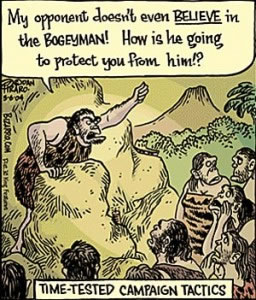 Oh, and I almost forgot, they’ll tell you that the stuff used to preserve or boost the vaccines (the booster is called an adjuvant) is poisoning your horse, too. They’ll claim that thimerosal (a compound that has mercury in it), aluminum, formaldehyde, anti-freeze, and many other “toxins” (which is one of the four words that I hate – CLICK HERE to read the article) are there to poison your horse.
Oh, and I almost forgot, they’ll tell you that the stuff used to preserve or boost the vaccines (the booster is called an adjuvant) is poisoning your horse, too. They’ll claim that thimerosal (a compound that has mercury in it), aluminum, formaldehyde, anti-freeze, and many other “toxins” (which is one of the four words that I hate – CLICK HERE to read the article) are there to poison your horse.
And it’s just dopey. Preservatives such as thimersol and formaldehyde are there to prolong the shelf-life of vaccines, and make them less prone to contamination. The tiny quantities in vaccines have never been shown to be harmful in the amounts given in vaccines. Plus, most equine vaccines don’t have those things in them anyway.
Look, I’m not here to tell you that vaccines are perfect, or that they are completely without problems. I mean, some horses do get sick after vaccination, a sickness that usually shows up as a fever, or swelling at the injection site. Some horses get abscesses at the injection site after vaccination, which is messy, and a pain, but usually not a big deal. Some horses that get vaccinated still get sick with the disease against which they were vaccinated. There’s also not good evidence that some of the vaccines even work. For example, the data for strangles or Potomac Horse Fever vaccines is not particularly impressive. Vaccination is not a perfect system, it’s a part of life, and life throws curve balls. That’s also why it’s a good idea to keep your veterinarian in the vaccination loop, just in case your horse does have some sort of a reaction.
But under any circumstances, vaccinating your horse from time to time is a whole lot better way to prevent your horse from getting sick than are some of the dopey things that are advocated in the name of “vaccinosis.” From what I can tell, those alternatives mostly are:
Most people don’t have any recollection of diseases such as whooping cough, mumps, or polio. That’s because effective vaccines have mostly gotten rid of the diseases (except in areas where people strongly oppose vaccination). In United States’ horses, diseases like equine encephalitis (in all of its geographic permutations, Eastern, Western, and Venezuelan) are rarely seen simply because many people vaccinate against them. And, when encephalitis is seen, it’s almost exclusively in unvaccinated horses. There are all sorts of problems that can be prevented – or at least moderated – through the use of vaccines: tetanus, West Nile Virus, Influenza, and Encephalitis, to name a few.
I just don’t get the “Don’t vaccinate” advice. It’s like people are saying, “Your horse might get sick from vaccines, so let’s let him get sick with diseases that are difficult or impossible to treat, instead.” What kind of dopey advice is that?
2) Draw blood samples to check blood titers from time to time
Vaccines produce an immune response, and there are measures of the immune response in the horse’s blood. For what it’s worth, I think it would be a great idea if you could take a blood test (in the case of the immune system, the test is called an antibody titer, and then see if the horse needs to be vaccinated. After all, what’s the point of giving medication if it isn’t needed?
Unfortunately, while this drawing titers thing actually sounds like a pretty good idea, there’s one big problem. In horses, this approach hasn’t been shown to mean anything. That is, there’s no level of antibody titer that can be said to be protective for any particular disease. You can’t measure a particular level and know whether a vaccine is needed or not. So, you (and your veterinarian), knowing that some vaccination is good, and no vaccination is bad, should work to devise a schedule that makes sense for everyone involved (and especially the horse). And, remember, you’re not going to hurt him by “too much” vaccination.
3) Use something else, like a homeopathic “nosode”
I haven’t spent a lot of time ranting about the dopey idea that is homoepathy, but you can read some thoughts (and see a really funny video, if you CLICK HERE). The idea behind nosodes is that you take stuff that makes you sick, and dilute it (and dilute it, and dilute it), and use THAT to prevent disease. It actually sounds sort of like a vaccine, except that it’s not at all, since there isn’t anything left after all of the dilution. And, to me, the idea that you’d want to use something that’s sort of like the same thing as vaccination, with the exception that it doesn’t work, is, well, dopey.
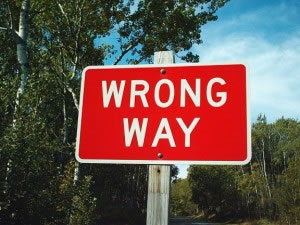 Somebody needs to call this vaccinosis stuff what it is, and it might as well be me, so here goes. In my opinion, people who promote the idea of vaccinosis are either 1) Afraid, 2) Ignorant, 3) Wrong, 4) Intentionally fear mongering, and/or 5) Trying to push their own ideology and sell you something. I don’t think that any of those things is a good approach to trying to keep your horse healthy.
Somebody needs to call this vaccinosis stuff what it is, and it might as well be me, so here goes. In my opinion, people who promote the idea of vaccinosis are either 1) Afraid, 2) Ignorant, 3) Wrong, 4) Intentionally fear mongering, and/or 5) Trying to push their own ideology and sell you something. I don’t think that any of those things is a good approach to trying to keep your horse healthy.
Work with your veterinarian to come up with a vaccination schedule that’s appropriate for your horse. Don’t be persuaded to avoid them by dopey ideas about vaccination. In fact, try not to be persuaded by dopey ideas about ANYTHING. If you are, you’ll end up doing something, well, dopey.

